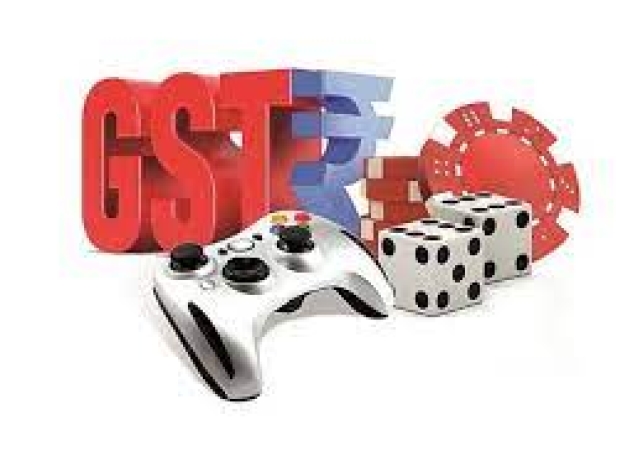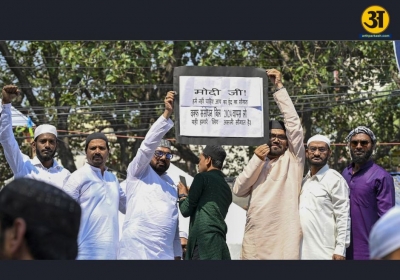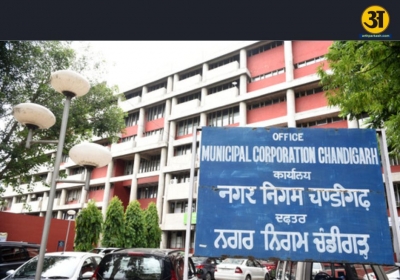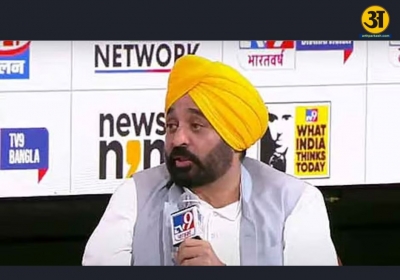
GST Council announces 28% Tax on Online Gaming
Indian Gamers Hit by Setback as GST Council Imposes 28% Tax Rate on Online Gaming Revenue
- By Gurmehar --
- Friday, 14 Jul, 2023
The 50th GST Council meeting in New Delhi concluded on Tuesday, bringing significant developments. In a drawback for online gaming companies, a 28% GST rate has been levied on the full value of gaming, horse racing, and casinos. This decision has raised concerns among Indian gamers.
Additionally, the council members announced an exemption of GST on important imports of pharmaceutical products, such as the cancer drug Dinutuximab, and Food for Special Medical Purposes (FSMP). These exemptions aim to facilitate access to crucial healthcare supplies.
Union Finance Minister Nirmala Sitharaman is scheduled to hold a media briefing to discuss the outcomes of the GST council meeting. The council's decisions have played a vital role in shaping the implementation of the GST system in India.
Revenue Secretary clarifies on ED sharing information of GST Network
After the meeting, Revenue Secretary Sanjay Malhotra addressed concerns regarding the sharing of information between the Enforcement Directorate (ED) and the GST Network (GSTN). He clarified that the recent notification from the finance ministry aims to empower tax authorities with more information, and GSTN is simply a recipient of this information.
Malhotra emphasized that the ED is neither receiving nor providing any information through this notification. Instead, the Director of the Financial Intelligence Unit (FIU) will provide information to empower authorities in cases where there are suspicions of tax evasion or money laundering.
Opposition-led states have raised concerns about the government's decision to allow the ED to share information with GSTN. The Ministry of Finance had previously introduced an amendment to the Prevention of Money Laundering Act (PMLA), 2002, which included GSTN, responsible for the technological infrastructure of GST, in the list of entities with which the ED can share information.
ALSO READ:
Mechanism to deal with differences in ITC between Form GSTR-2B and Form GSTR-3B
The Council has proposed a system-based notification mechanism for taxpayers to be informed about cases where they have claimed excessive Input Tax Credit (ITC) in FORM GSTR-3B compared to what is available in FORM GSTR-2B, above a certain threshold. This mechanism will also include an automated compliance process for taxpayers to explain the reasons for such discrepancies or take corrective measures.
To facilitate this, the Council suggests inserting rule 88D and FORM DRC-01C into the CGST Rules, 2017, along with amending rule 59(6) of the same rules. These measures aim to minimize discrepancies in ITC utilization and prevent the misuse of ITC benefits in the GST system.
Circular to be issued for TCS liability for multiple e-commerce operators
The council has decided to issue a circular to provide clarification on the Tax Collected at Source (TCS) liability under Section 52 of the CGST Act, 2017. This clarification specifically addresses situations where multiple E-commerce Operators (ECOs) are involved in a single transaction of supplying goods or services. The circular aims to provide clear guidelines regarding the TCS liability in such cases.
GST forms for annual returns for FY23
The Council has proposed that the relaxations granted in the previous financial year (FY 2021-22) regarding certain sections of FORM GSTR-9 and FORM GSTR-9C should be extended for the current financial year (FY 2022-23) as well. This recommendation aims to provide continued relief to taxpayers in fulfilling their compliance obligations.
Additionally, to alleviate the compliance burden on smaller taxpayers, the exemption from filing annual returns (FORM GSTR-9/9A) will also be extended for FY 2022-23. This exemption applies to taxpayers with an aggregate annual turnover of up to two crore rupees.
How 28% GST will impact gaming
In a surprising move, the GST Council has decided to increase the tax rate for gamers, placing them on par with gamblers. This decision translates to a significant rise, from 1.8 rupees per 100 rupees spent on gaming to 28 rupees per 100 rupees. The impact of this decision is expected to discourage players from engaging in gaming activities, while also burdening gaming professionals who rely on it as their livelihood.
Furthermore, this tax hike may push players towards offshore gaming platforms, creating uncertainties for the envisioned growth of a thriving digital gaming ecosystem. With various regulatory and legal developments already affecting the sector, the new tax implementation adds another layer of concern for the gaming industry.
ALSO READ:
28% tax rate on the gaming industry will be a big setback for Indian players
The gaming industry in India is facing a major setback as the long-standing demand for a lower tax rate goes unheeded. The recent decision to levy a 28% tax rate on the gaming sector is expected to have significant implications for Indian players. The details of the notification are awaited to determine if any exceptions have been made. It is likely that gaming players will receive notices regarding differential tax, leading to a series of litigations.
With the increasing use of handheld devices and technological advancements, the online gaming market in India has witnessed rapid growth, reaching a value of USD 3 billion and boasting over 400 million users. To maintain competitiveness in the global market, it was crucial to align the taxability of the gaming industry with international standards. However, by imposing a 28% tax rate, Indian game companies face a disadvantage compared to countries where online gaming is taxed at approximately 18%.
Additionally, the taxability seems to be based on the face value of transactions rather than considering margins or platform fees. This approach will have an adverse impact on customers, as they will receive less playable value due to the increased tax burden.





